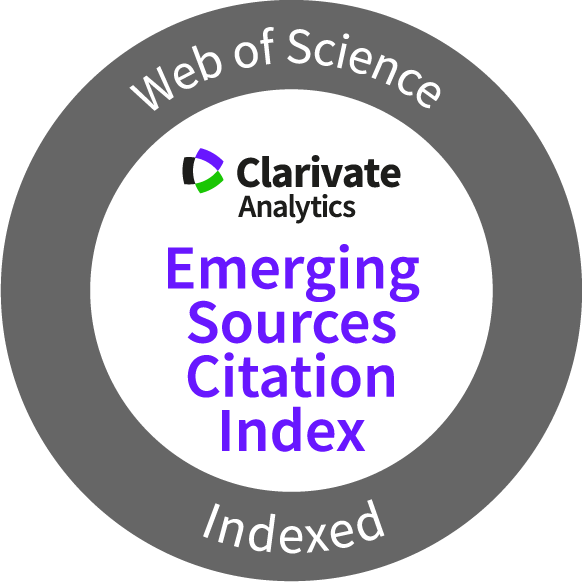Reading and creative writing as a tool for analysis and transformation of the ageing experience
DOI:
https://doi.org/10.22234/recu.20210901.e548Keywords:
ageing, wisdom, loneliness, illness, creativityAbstract
Literature is especially important for senior citizens, since through literary representations they can question stereotypes and taboos associated to the ageing experience as well as the continuity of creativity during old age. The analysis and the results presented in this article are based on a reading and creative writing workshop organised within the “Aula abierta” programme at the Universitat de Lleida. In the four sessions that composed the workshop, texts from contemporary authors that focused on topics such as wisdom, loneliness, illness and death were analysed. Through the analysis of the debates and the creative writing activities of the participants, we conclude that literature is an ideal medium to reflect and debate on ageing from an open and creative perspective. Amongst the main conclusions of the analysis, creativity continues to be present in old age.
Downloads
References
Andrews, M. (1999). The seductiveness of agelessness. Aging and Society, 19, 301-318. https://doi.org/10.1017/S0144686X99007369
Baars, J. (2012). A Passion for Wisdom and the Emergence of an Art of Aging. Aging and the Art of Living. Baltimore: Johns Hopkins University Press, pp. 85-126.
Barnes, H. y Parry, J. (2003). Renegotiating identity and relationships: men and women’s adjustments to retirement. Policy Studies Institute, pp. 1-41.
Barnes, J. (2004). La mesa limón. Barcelona: Anagrama.
Basting, A. D. (2009). Forget Memory. Creating Better Lives for People with Dementia. Baltimore: The John Hopkins University Press.
Basting A. D., Towey, M. y Rose, E. (Eds.) (2016). The Penelope Project: An Arts-based Odyssey to Change Elder Care. The University of Iowa Press.
Boudiny, K. (2013). ‘Active ageing’: From empty rhetoric to effective policy tool. Ageing and Society, 33(6), 1077-1098. https://doi.org/10.1017/S0144686X1200030X
Boudiny, K. y Mortelmans, D. (2011). A Critical Perspective: Towards a Broader Understanding of ‘Active Ageing’. Electronic Journal of Applied Psychology, 7(1), 8-14. https://doi.org/10.7790/ejap.v7i1.232
Casado-Gual, N. (2019a). Literary Mentors for Life: Joan Margarit’s Lessons on Poetry and Ageing in New Letters to a Young Poet. En N. Casado-Gual, E. Domínguez-Rué y M. Oró-Piqueras (Eds.) Re-Discovering Age(ing): Narratives of Mentorship, pp. 87-104. Bielefield: Transcript.
Casado-Gual, N. (2019b). Lessons from an Older Poet: The Meanings of Ageing in Joan Margarit's Late-life Poetry. Catalan Review, 33, 39-54. https://doi.org/10.3828/CATR.33.3
Casado-Gual, N., Domínguez-Rué, E. y Oró-Piqueras, M. (2019). Of Wisdom, Growth, and Gratitude: Revisiting the Mentor Figure within the Framework of Ageing Studies. En N. Casado-Gual, E. Domínguez-Rué y M. Oró-Piqueras (Eds.) Re-Discovering Age(ing): Narratives of Mentorship. pp. 9-20. Bielefeld: Transcript.
Casado-Gual, N., Domínguez-Rué, E. y Worsfold, Brian. (Eds.) (2016). Literary Creativity and the Older Woman Writer: A Collection of Critical Essays. Bern: Peter Lang.
Chivers, S. (2011). The Silvering Screen. Old Age and Disability in Cinema. Toronto: The University of Toronto Press.
Cohen-Shalev, A. (1989). Old age style: Developmental changes in creative production from a life-span perspective. Journal of Aging Studies, 3(1), 21-37. https://doi.org/10.1016/0890-4065(89)90023-6
Cohen-Shalev, A. (2002). Both Worlds at Once: Art in Old Age. Boston: University Press of America.
Cuadrado, F., Rosal, M., Moriana, J. A., y Antolí, A. (2016). La representación de la enfermedad de Alzheimer en los álbumes ilustrados. Ocnos: Revista de estudios sobre lectura, 15(2), 7-20. https://doi.org/10.18239/ocnos_2016.15.2.1029
Crozier, L. (1999). Watching My Lover. What the Living Won’t Let Go. pp. 71-72. Toronto: McClelland and Stewart.
Crozier, L. (2011). Taking the Measure. Small Mechanics. p. 81. Toronto: McClelland and Stewart.
Cruikshank, M. (2009). Learning to be Old. Gender, Culture and Aging. Lanham, Maryland: Rowman and Littlefield Publishers.
Doblas, J. L. & Conde, M. D. P. D. (2018). El sentimiento de soledad en la vejez. Revista Internacional de Sociología, 76(1), e085. https://doi.org/10.3989/ris.2018.76.1.16.164
Domínguez-Rué. E. (2019). Patriarchy and Poetic Justice: Women as Victims and Perpetrators of Crime in Donna Leon’s Death at La Fenice, A Venetian Reckoning and About Face. En M. X. Lama, D. Resano y Losada, E. (Eds.) Papers del crim. Dones i violència a la ficció criminal. pp. 129-143. Barcelona: Edicions de la Universitat de Barcelona.
Domínguez-Rué, E. (2018). The art of doing good. Aging, creativity and wisdom in the Isabel Dalhousie Novels. Journal of Aging Studies, 44, 22-27. https://doi.org/10.1016/j.jaging.2017.11.003
Domínguez-Rué. E. (2012). In Their Blooming Sixties: Aging as Awakening in Amanda Cross’ The Imperfect Spy and The Puzzled Heart. European Journal of Life Writing, 1(1), 1-21. https://doi.org/10.5463/ejlw.1.23
Domínguez-Rue, E. (2014). What Goes Around Comes Back Around: Life Narratives and the Significance of the Past in Donna Leon’s Death at La Fenice. Journal of Aging Studies, 29(2), 124-130. https://doi.org/10.1016/j.jaging.2014.02.005
Domínguez-Rué, E. (2016). Successful Female Aging for Beginners: Carolyn Heilbrun / Amanda Cross and perspectives of Gendered Aging in The Players Come Again. Journal of Gender Studies, 25, 99-110. https://doi.org/10.1080/09589236.2014.916202
Edmonson, R. (2005). Wisdom in Later Life: Ethnographic Approaches. Aging and Society, 25(6), 339-336. https://doi.org/10.1017/S0144686X04003320
Flood, M. y Phillips, K. (2007). Creativity in older adults: A plethora of possibilities. Issues in Mental Health Nursing, 28, 389-411. https://doi.org/10.1080/01612840701252956
Falcus, S. (2015). Literature and Ageing. Routledge Handbook of Cultural Gerontology. En J. Twig & W. Martin (Eds.) London: Routledge.
Friedan, B. (1993). The Fountain of Age. New York: Touchstone.
Greer, G. (1992). The Change. Women, Aging and the Menopause. New York: Alfred A. Knopf.
Gullette, M. M. (2011). Agewise: Fighting the New Ageism in America. Chicago and London: University of Chicago Press.
Gullette, M. M. (2004). Aged by Culture. Chicago: University of Chicago Press.
Gullette, M. M. (2019). Ending Ageism, or How Not to Shoot Old People. New Brunswick: Rutgers University Press.
Heilbrun, C. (1988). Writing a Woman’s Life. New York: Ballantine Books.
Hepworth, M. (2000). Stories of Ageing. Open University Press.
Hubble, N. & Tew, P. (2013). Ageing, Narrative and identity. New Qualitative Social Research. London: Palgrave Macmillan.
Margarit, J. (2009). Noves cartes a un jove poeta. Barcelona: Proa.
Margarit, J. (2017). Un hivern fascinant. Barcelona: Proa.
Marshall, L. (2015). Age Becomes Us. Bodies and Gender in Time. Sunny Press.
Marshall, L. (2012). Through (with) the Looking Glass: Revisiting Lacan and Woodward in “Méconnaissance”, the Mirror Stage of Old Age. Feminist Formations, 24(2), 52-76. https://www.jstor.org/stable/23275104
Marshall, B. L. & Katz, S. (2002). Forever Functional: Sexual Fitness and the Ageing Male Body. Body & Society, 8(4), 43-70. https://doi.org/10.1177/1357034X02008004003
McCall-Smith, A. (2004). The Sunday Philosophy Club. London: Abacus.
McCall-Smith, A. (2009). The Lost Art of Gratitude. London: Abacus.
McCall Smith, A. (2004). El club filosófico de los domingos. Barcelona: Roca.
Medina, R. (2018). Cinematic Representations of Alzheimer’s Disease. London: Palgrave Macmillan.
Mina-Riera, N. (2021). A Poet’s Seasons: A Gerontological-Ecocritical Approach to the Poetry of Lorna Crozier. [Unpublished Doctoral Dissertation. To be submitted during the second term of 2021] Universidad de Lleida.
Mina-Riera, N. (2016). The Beginning of Lorna Crozier’s Late-Style: A Thematic Change in the Symbol of Snow. Literary Creativity and the Older Woman Writer. En N. Casado-Gual, E. Domínguez-Rué y B. Worsfold (Eds.) pp. 225-248. Bern: Peter Lang.
Molina-Luque, F., Casado-Gual, N. y Sanvicén-Torne, P. (2018). Mujeres mayores también activas, creativas y fuertes: modelos para romper estereotipos. Revista Prisma Social, 21, 43-74.
Neimeyer, R. A. (2002). Making Sense of Loss. En Doka, K.J. (Ed.) Living with Grief: Loss in Later Life. pp. 295-311. Washington DC: Hospice Foundation of America.
Oró-Piqueras, M. (2018). Exploring the path to death through Julian Barnes’s older characters: between irony and melancholic meditation. Journal of Aging Studies, 44, 15-21. https://doi.org/10.1016/j.jaging.2017.09.004
Oró-Piqueras, M. (2014). Memory Revisited in Julian Barnes’s. The Sense of an Ending. Coolabah, 13. https://revistes.ub.edu/index.php/coolabah/article/view/15527/18682
Oró-Piqueras, M. (2019). The multiple faces of aging into wisdom in Julian Barnes’s The Lemon Table. The Gerontologist, 59(6), 1-8. https://doi.org/10.1093/geront/gnz089
O’Regan, N. (2003). Cool, clean man of letters. The Post I.E. The Sunday Business Post, 1-2. 26 June.
Sokoloff, J. (1987). The Margins that Remain: A Study of Ageing in Literature. New York: Peter Lang, 1987.
Swinnen, A. (2014). Healing Words: A Study of Poetry Interventions in Dementia Care. Dementia, 15(6), 1377-1404. https://doi.org/10.1177/1471301214560378
Tornstam, L. (2005). Gerotranscendence: A Developmental Theory of Positive Aging. New York: Springer.
Waxman, B. (1990). From the Hearth to the Open Road: A Feminist Study of Aging in Contemporary Literature. Greenwood Press.
Woodward, K. (Ed). (1999). Figuring Age. Women, Bodies, Generations. Bloomington, Indiana: Indiana University Press.
Woodward, K. (1980). At Last, The Real Distinguished Thing: The Late Poems of Eliot, Pound, Stevens, and Williams. Columbus, Ohio: Ohio State University Press.
Wyatt-Brown, A. & J. Rossen (Eds.) (1993) Aging and Gender in Literature: Studies in Creativity. Charlotessville and London: University Press of Virginia.
Wyatt-Brown, A. (1989a). Creativity in Midlife: the Novels of Anita Brookner. Journal of Aging Studies, 3, 175-181. https://doi.org/10.1016/0890-4065(89)90015-7
Wyatt-Brown, A. (2010). Resilience and Creativity in Aging: The Realms of Silver. In: R. T. Cole, R. Ruth y R. Kastenbaum (Eds.) A Guide to Humanistic Studies in Aging: What Does It Mean to Grow Old? pp. 57-82 Baltimore, Maryland: The Johns Hopkins University Press.
Wyatt-Brown, A. (1990). The Coming of Age of Literary Gerontology. Journal of Aging Studies, 4(3), 299-315. https://doi.org/10.1016/0890-4065(90)90029-8
Wyatt-Brown, A. (1989b). The Narrative Imperative: Fiction and the Aging Writer. Journal of Aging Studies, 3, 55-65. https://doi.org/10.1016/0890-4065(89)90025-X
Zeilig, H. (2011). The critical use of narrative and literature in gerontology. International Journal of Aging and Later Life, 6(2), 7-37. https://doi.org/10.3384/ijal.1652-8670.11627
Published
How to Cite
Issue
Section
License
Copyright (c) 2021 Maricel Oró-Piqueras, Emma Domínguez-Rué, Núria Mina-Riera, Núria Casado-Gual

This work is licensed under a Creative Commons Attribution 4.0 International License.
Culturales journal allows you to share, copy and redistribute the material in any medium or format; adapt, remix, transform, and build upon the material for any purpose, including commercially, by properly crediting the work and providing a link to the license indicating whether changes have been made.
Culturales journal is licensed under the Creative Commons Attribution 4.0 International License (CC BY 4.0)























